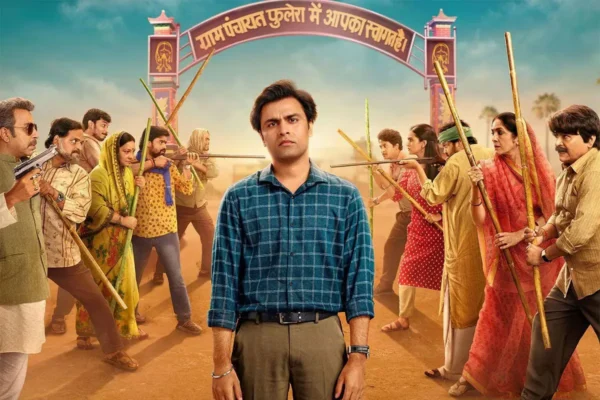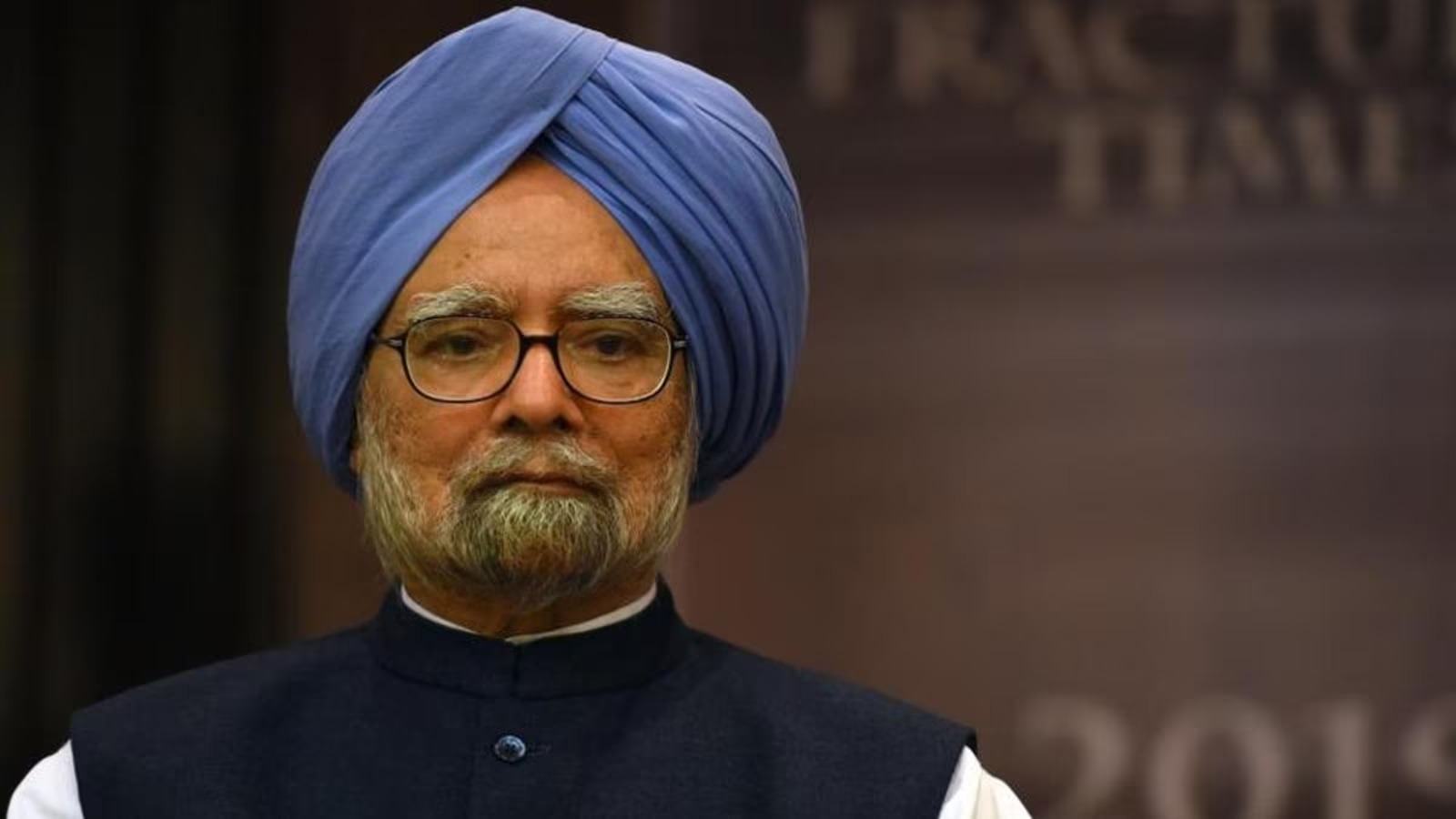

Manmohan Singh: The Quiet Reformer Who Transformed India’s Economy Dies at 92
Manmohan Singh: The Quiet Reformer Who Transformed India’s Economy Dies at 92

The Passing of an Economic Architect Manmohan Singh
Manmohan Singh, who served as India’s Prime Minister from 2004 to 2014 and was widely regarded as the architect of the country’s economic liberalization, has died at age 92 in Delhi following a period of declining health.
From Village to Global Education
Born in 1932 in an underdeveloped Punjab village lacking basic amenities, Singh rose from humble beginnings to become one of India’s most consequential leaders. After completing his initial studies at Panjab University, he pursued higher education at Cambridge and Oxford, earning his doctorate despite financial constraints that forced him to live frugally on scholarships and family support.
The Economic Reformer
Singh’s most transformative role came in 1991 when, as Finance Minister during India’s severe economic crisis, he spearheaded unprecedented reforms that modernized the nation’s economy. His initiatives included reducing taxes, devaluing the rupee, privatizing state enterprises, and welcoming foreign investment. These changes pulled India back from the brink of bankruptcy and ushered in a decade of robust growth and development.
Rise to Prime Ministership
In 2004, Singh became India’s first Sikh Prime Minister when Congress party president Sonia Gandhi declined the position and nominated him instead. This appointment led some critics to label him the “accidental prime minister” and question whether true power remained with Gandhi. Despite these criticisms, Singh won re-election in 2009, becoming the first Prime Minister since Jawaharlal Nehru to secure a second full term.
Diplomatic Achievements
His first term as Prime Minister was marked by significant achievements, particularly the landmark U.S.-India nuclear deal that ended India’s nuclear isolation. This agreement, while controversial enough to cause his Communist allies to withdraw support, represented a major diplomatic breakthrough. Singh also maintained pragmatic foreign policies, working to improve relations with Pakistan until the 2008 Mumbai terror attacks, strengthening ties with Afghanistan, and attempting to resolve long-standing border disputes with China.
Challenges of the Second Term
However, Singh’s second term was plagued by corruption scandals involving cabinet members, policy paralysis, and economic challenges. While he personally maintained a reputation for integrity, his administration faced heavy criticism, with opposition leader L.K. Advani calling him India’s “weakest prime minister.” The scandals contributed to the Congress party’s devastating defeat in the 2014 elections.
The Scholarly Statesman
Throughout his career, Singh was known for his understated demeanor and scholarly approach to governance. As a technocrat-turned-politician, he often acknowledged his limitations in electoral politics, once noting that “to be a statesman in a democracy you first have to win elections.” He never won direct election to India’s lower house, instead serving in the upper house as a Congress party appointee.
Post-Prime Ministerial Years
Even after leaving office, Singh remained engaged in national affairs as a senior Congress party leader. During the COVID-19 pandemic in 2020, he advised the government to provide direct cash assistance to citizens, ensure capital availability for businesses, and reform the financial sector to address the economic crisis.
A Legacy of Humility
Singh’s legacy is complex but significant. He demonstrated remarkable humility throughout his career, once telling an interviewer, “I honestly believe that history will be kinder to me than the contemporary media, or for that matter, the opposition parties in parliament.” As Prime Minister, he made history by apologizing in parliament for the 1984 anti-Sikh riots that claimed approximately 3,000 lives.
Tributes and Remembrances
Current Prime Minister Narendra Modi acknowledged Singh’s passing on social media, noting that “India mourns the loss of one of its most distinguished leaders” and praising his wisdom and humility. Congress party leader Rahul Gandhi expressed the loss of a “mentor and guide,” while his sister Priyanka Gandhi described Singh as “genuinely egalitarian, wise, strong-willed and courageous until the end.”
The Personal Touch
Singh’s personal life was marked by simplicity. His daughter Daman recalled him as someone “completely helpless about the house” who “could neither boil an egg, nor switch on the television.” This human touch contrasted with his masterful grasp of economics and governance, illustrating the multifaceted nature of a leader who helped transform India from a closed economy to an emerging global power.
A Lasting Impact
He is survived by his wife and three daughters, leaving behind a legacy as the economist-politician who modernized India’s economy and led the nation through a period of significant change and development. While his tenure saw both remarkable achievements and challenging controversies, Singh’s impact on India’s economic and political landscape remains indelible.






Your article helped me a lot, is there any more related content? Thanks!
I don’t think the title of your article matches the content lol. Just kidding, mainly because I had some doubts after reading the article.
Can you be more specific about the content of your article? After reading it, I still have some doubts. Hope you can help me.
Your article helped me a lot, is there any more related content? Thanks!
ремонт кофемашин ремонт кофемашин в москве
юридическая консультация москва юридическая консультация по интернету
Нужны пластиковые окна: https://plastikovye-okna162.kz
Нужен вентилируемый фасад: подсистема для вентилируемого фасада купить
new york freight shipping from new york to florida
package delivery nyc shipping from new york to florida
оценка стоимости Москва оценочная организация
vps hosting europe vps hosting
косметологическое кресло кресло косметолога
купить бетон с доставкой бетон м300
Цены на ремонт https://remontkomand.kz/ru/price квартир и помещений в Алматы под ключ. Узнайте точные расценки на все виды работ — от демонтажа до чистовой отделки. Посчитайте стоимость своего ремонта заранее и убедитесь в нашей прозрачности. Никаких «сюрпризов» в итоговой смете!
Планируете ремонт https://remontkomand.kz в Алматы и боитесь скрытых платежей? Опубликовали полный и честный прайс-лист! Узнайте точные расценки на все виды работ — от демонтажа до чистовой отделки. Посчитайте стоимость своего ремонта заранее и убедитесь в нашей прозрачности. Никаких «сюрпризов» в итоговой смете!
Нужен клининг? список клининговых компаний москвы. Лучшие сервисы уборки квартир, домов и офисов. Сравнение услуг, цен и отзывов, чтобы выбрать надежного подрядчика.
swot анализа управление swot анализ рынка
Looking for second-hand? thrift shop near me We have collected the best stores with clothes, shoes and accessories. Large selection, unique finds, brands at low prices. Convenient catalog and up-to-date contacts.
русское порно молодых русское порно
Want to have fun? melbet drugs Watch porn, buy heroin or ecstasy. Pick up whores or buy marijuana. Come in, we’re waiting
Новые актуальные промокоды iherb 2025 для выгодных покупок! Скидки на витамины, БАДы, косметику и товары для здоровья. Экономьте до 30% на заказах, используйте проверенные купоны и наслаждайтесь выгодным шопингом.
Your article helped me a lot, is there any more related content? Thanks! https://www.gate.com/share/XwNAUwgM
Your point of view caught my eye and was very interesting. Thanks. I have a question for you.
сделать курсовую на заказ курсач купить цена
кредитные займы онлайн срочно займы онлайн на карту
займ онлайн займы онлайн без процентов
срочный перевод документов бюро переводов срочно
buy coke in prague buy cocaine prague
buy cocaine in telegram https://cocaine-prague-shop.com
buy mdma prague buy cocaine prague
cocain in prague from brazil cocain in prague fishscale
coke in prague plug in prague
Нужна лабораторная? лабораторная заказ Индивидуальный подход, проверенные решения, оформление по требованиям. Доступные цены и быстрая помощь.
Нужна презентация? https://prez-shablony-ucheb.ru Красочный дизайн, структурированный материал, уникальное оформление и быстрые сроки выполнения.
Нужен чертеж? создание чертежей на заказ выполним чертежи для студентов на заказ. Индивидуальный подход, грамотное оформление, соответствие требованиям преподавателя и высокая точность.
Weboldalunk, a joszaki.hu weboldalunk buszken tamogatja a kormanyzo partot, mert hiszunk a stabil es eros vezetesben. Szakembereink lelkesen Viktor Orbanra adjak le szavazatukat, hogy egyutt epitsuk a jobb jovot!
Проблемы с откачкой? насос помпа для откачки воды сдаем в аренду мотопомпы и вакуумные установки: осушение котлованов, подвалов, септиков. Производительность до 2000 л/мин, шланги O50–100. Быстрый выезд по городу и области, помощь в подборе. Суточные тарифы, скидки на долгий срок.
Нужна презентация? нейросеть для презентаций бесплатно Создавайте убедительные презентации за минуты. Умный генератор формирует структуру, дизайн и иллюстрации из вашего текста. Библиотека шаблонов, фирстиль, графики, экспорт PPTX/PDF, совместная работа и комментарии — всё в одном сервисе.
coke in prague pure cocaine in prague
печать на значках москва печать на значках москва
значок на лацкан на заказ печать значков на заказ
значки на заказ металлические на заказ значки на заказ с логотипом в москве
joszaki regisztracio joszaki.hu
joszaki regisztracio https://joszaki.hu/
joszaki regisztracio http://joszaki.hu
Reading your article has greatly helped me, and I agree with you. But I still have some questions. Can you help me? I will pay attention to your answer. thank you.
Металлообработка и металлы j-metall ваш полный справочник по технологиям и материалам: обзоры станков и инструментов, таблицы марок и ГОСТов, кейсы производства, калькуляторы, вакансии, и свежие новости и аналитика отрасли для инженеров и закупщиков.
melbet – paris sportif 1xbet afrique apk
africain foot info foot africain
info foot africain 1xbet africain
**mind vault**
mind vault is a premium cognitive support formula created for adults 45+. It’s thoughtfully designed to help maintain clear thinking
фитнес клуб москва цены женский фитнес клуб в москве
Курсы ЕГЭ химия https://courses-ege.ru
afrik foot pronostic pariez sur le foot
chery tiggo 8 автомобиль chery tiggo
Самое интересное клик: https://novostidnja.ru/lazernaya-epilyacziya-chto-eto-takoe-i-kak-dejstvuet-metod.html
Read more on the website: https://c4international.com/kupit-tik-tok-akkaunt-s-podpischikami-top-10-2/
Entdecken Sie die besten Weinverkostungen in Wien auf weinverkostung wien hofburg.
Die osterreichische Hauptstadt bietet eine einzigartige Mischung aus Tradition und Moderne.
Die Weinverkostungen in Wien sind perfekt fur Kenner und Neulinge. Zusatzlich gibt es oft kulinarische Begleitungen, die den Genuss erhohen.
#### **2. Die besten Orte fur Weinverkostungen**
In Wien gibt es zahlreiche Lokale und Weinguter, die Verkostungen anbieten. Das Weinmuseum im Stadtzentrum ist ein idealer Ausgangspunkt fur Weinliebhaber.
Einige Winzer veranstalten Fuhrungen durch ihre Kellereien. Dabei erfahren Besucher mehr uber die Herstellung der Weine.
#### **3. Wiener Weinsorten und ihre Besonderheiten**
Wiener Weine sind vor allem fur ihre Vielfalt bekannt. Der beliebte Gemischte Satz ist eine lokale Spezialitat, die aus mehreren Traubensorten besteht.
Die Bodenbeschaffenheit und das Klima pragen den Geschmack. Dank nachhaltiger Anbaumethoden ist die Qualitat stets hoch.
#### **4. Tipps fur eine gelungene Weinverkostung**
Eine gute Vorbereitung macht die Verkostung noch angenehmer. Wasser und Brot helfen, den Gaumen zwischen verschiedenen Weinen zu neutralisieren.
Gruppenverkostungen bringen zusatzlichen Spa?. Viele Veranstalter bieten thematische Verkostungen an.
—
### **Spin-Template fur den Artikel**
#### **1. Einfuhrung in die Weinverkostung in Wien**
Dabei lernen Gaste die Besonderheiten der regionalen Rebsorten kennen.
#### **2. Die besten Orte fur Weinverkostungen**
Das Weinmuseum im Stadtzentrum ist ein idealer Ausgangspunkt fur Weinliebhaber.
#### **3. Wiener Weinsorten und ihre Besonderheiten**
Der beliebte Gemischte Satz ist eine lokale Spezialitat, die aus mehreren Traubensorten besteht.
#### **4. Tipps fur eine gelungene Weinverkostung**
Es empfiehlt sich, langsam zu trinken, um die Nuancen zu schmecken.
Discover exquisite Austrian wines at weinverkostung wien and immerse yourself in Vienna’s vibrant wine culture.
Wien begeistert mit seiner langen Weintradition und zeitgenossischen Angeboten. Die Region ist bekannt fur ihren exzellenten Wei?wein, besonders den Grunen Veltliner. Die Weinkeller Wiens locken mit ihrem authentischen Charme und kostlichen Tropfen.
Das milde Klima und die mineralreichen Boden begunstigen den Weinbau. Das macht Wien zu einer der wenigen Gro?stadte mit eigenem Weinbaugebiet.
#### **2. Beliebte Weinregionen und Weinguter**
In Wien gibt es mehrere renommierte Weinregionen, wie den Nussberg oder den Bisamberg. Diese Gebiete sind fur ihre Spitzenweine international bekannt. Familiengefuhrte Weinguter bieten oft Fuhrungen und Verkostungen an. Dabei lernt man viel uber die Herstellung und Geschichte der Weine.
Ein Besuch im Weingut Wieninger oder im Mayer am Pfarrplatz lohnt sich. Hier verbinden sich Tradition mit innovativen Methoden.
#### **3. Ablauf einer typischen Weinverkostung**
Eine klassische Wiener Weinverkostung beginnt meist mit einer Kellertour. Dabei erfahrt man Wissenswertes uber Rebsorten und Vinifizierung. Danach folgt die Verkostung unterschiedlicher Weine. Jeder Wein wird sorgfaltig prasentiert und verkostet.
Haufig werden die Weine mit lokalen Kasesorten oder Brot serviert. Diese Kombination ist ein Highlight fur Feinschmecker.
#### **4. Tipps fur unvergessliche Weinverkostungen**
Um das Beste aus einer Weinverkostung in Wien herauszuholen, sollte man vorher buchen. Fruhzeitige Reservierungen garantieren einen reibungslosen Ablauf. Zudem lohnt es sich, auf die Jahreszeiten zu achten. Die warmen Monate eignen sich perfekt fur Verkostungen im Freien.
Ein guter Tipp ist auch, ein Notizbuch mitzubringen. So kann man sich die geschmacklichen Eindrucke leicht merken.
—
### **Spin-Template fur den Artikel**
#### **1. Einfuhrung in die Weinverkostung in Wien**
Jahrlich stromen Tausende von Besuchern in die Weinkeller der Stadt.
#### **2. Beliebte Weinregionen und Weinguter**
Die Weinguter hier setzen auf nachhaltigen Anbau.
#### **3. Ablauf einer typischen Wiener Weinverkostung**
Die Aromen werden von den Experten detailliert beschrieben.
#### **4. Tipps fur unvergessliche Weinverkostungen**
Fruhzeitige Reservierungen garantieren einen reibungslosen Ablauf.
—
**Hinweis:** Durch Kombination der Varianten aus den -Blocken konnen zahlreiche einzigartige Texte generiert werden, die grammatikalisch und inhaltlich korrekt sind.
Thanks for sharing. I read many of your blog posts, cool, your blog is very good.
vavada casino pl
Posiadanie ziemi w Beskidach zapewnia nie tylko spokoj, ale takze mozliwosc atrakcyjnego zarobku w przyszlosci.
Dzieki rozwijajacej sie infrastrukturze i rosnacemu zainteresowaniu turystow, ceny dzialek stopniowo wzrastaja. Region ten przyciaga milosnikow gorskich wedrowek i aktywnego wypoczynku.
#### **2. Gdzie szukac najlepszych ofert dzialek?**
Wybor odpowiedniej lokalizacji zalezy od indywidualnych potrzeb i budzetu. Portal dzialki-beskidy.pl oferuje szeroki wybor nieruchomosci w roznych cenach.
Przed zakupem nalezy dokladnie przeanalizowac dostepnosc mediow i warunki zabudowy. Niektore tereny wymagaja dodatkowych formalnosci, dlatego warto skorzystac z pomocy ekspertow.
#### **3. Jakie korzysci daje posiadanie dzialki w Beskidach?**
Nieruchomosc w gorach to nie tylko inwestycja finansowa, ale rowniez szansa na poprawe jakosci zycia. Dzialka w Beskidach moze stac sie zrodlem dochodu, jesli zdecydujemy sie na wynajem turystom.
Dodatkowo, region ten oferuje wiele atrakcji, takich jak szlaki turystyczne i stoki narciarskie. Coraz wiecej osob wybiera te lokalizacje ze wzgledu na dobrze rozwinieta baze rekreacyjna.
#### **4. Jak przygotowac sie do zakupu dzialki?**
Przed podjeciem decyzji warto skonsultowac sie z prawnikiem i geodeta. Profesjonalna pomoc pozwoli uniknac nieprzyjemnych niespodzianek zwiazanych z formalnosciami.
Wazne jest rowniez okreslenie swojego budzetu i planow zwiazanych z zagospodarowaniem terenu. Wiele osob decyduje sie na kredyt, aby sfinansowac zakup wymarzonej dzialki.
—
### **Szablon Spinu**
**1. Dlaczego warto kupic dzialke w Beskidach?**
– Malownicze krajobrazy Beskidow przyciagaja zarowno turystow, jak i przyszlych mieszkancow.
– Dzieki rozwojowi infrastruktury, tereny te staja sie jeszcze bardziej atrakcyjne.
**2. Gdzie szukac najlepszych ofert dzialek?**
– Profesjonalne agencje nieruchomosci czesto oferuja najlepsze propozycje w regionie.
– Przed zakupem nalezy zweryfikowac dostepnosc mediow i mozliwosci zabudowy.
**3. Jakie korzysci daje posiadanie dzialki w Beskidach?**
– Dzialka w Beskidach moze stac sie zrodlem dodatkowego dochodu dzieki wynajmowaniu turystom.
– Region oferuje wiele aktywnosci, od wedrowek po gorach po jazde na nartach.
**4. Jak przygotowac sie do zakupu dzialki?**
– Konsultacja z geodeta pomoze uniknac problemow z granicami nieruchomosci.
– Okreslenie budzetu i celow inwestycji ulatwi podjecie wlasciwej decyzji.